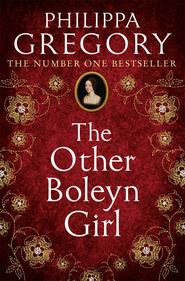По всем вопросам обращайтесь на: info@litportal.ru
(©) 2003-2025.
✖
Virgin Earth
Настройки чтения
Размер шрифта
Высота строк
Поля
Summer 1657 (#litres_trial_promo)
Summer 1657 (#litres_trial_promo)
Autumn 1658 (#litres_trial_promo)
Spring 1659 (#litres_trial_promo)
Summer 1659 (#litres_trial_promo)
Autumn 1659 (#litres_trial_promo)
Spring 1660 (#litres_trial_promo)
Summer 1660 (#litres_trial_promo)
Autumn 1660 (#litres_trial_promo)
Winter 1660 (#litres_trial_promo)
Keep Reading (#litres_trial_promo)
About the Author (#litres_trial_promo)
Also by the Author (#litres_trial_promo)
About the Publisher (#litres_trial_promo)
Winter 1638, At Sea (#ulink_dd3a4317-57c4-58dc-b438-af4949307c95)
He woke to the sound of the moving ship, the creaking of the timbers and the aching sigh of the full sails spread, the sudden abrupt rattle of a pulley as a sail was reefed in, the drumming of booted feet on the deck just above his face, the holler of an order, and the continual attack of the sea – the bang of the waves against the prow and the groan of the tiny ship as she climbed up one wave and then wallowed and turned to confront another.
He had slept and woken to this ceaseless din for six long weeks and now he found it familiar and soothing. It meant that the little ship was soldiering on through the terrifying expanse of wind and water, still headed westwards, faithful to the hope that westwards would be the new land. Sometimes J imagined their progress as a seagull might see it looking down, the vast waste of sea and the fragile ship with its lamps burning at dusk, headed trustfully towards where they had last seen the sun.
He had set sail in deep grief, in flight from grief. Even now he dreamed of his wife with bright joyful immediacy, dreamed that she came to him on board the ship and laughingly complained that there was no need for him to set sail, no need for him to run off to Virginia alone, for see! here she was on board herself, and it had all been a game – the plague, her long days of dying, the terrible white-faced grief of their daughter – all a May game, and here she was well and strong, and when would they go home again? Then the noises of the ship were a terrible interruption and J would pull his damp blanket over his face, and try to cling to the dream of Jane and the certainty that she was alive and everything was well.
He could not. He had to wake to the bleak truth that she was dead, and his business half-bankrupt, his father hanging on to their house and their nursery garden and their collection of rarities by the old combination of luck and the love of his friends, while J played the part of the indulged son – fleeing from all of it, calling it a venture, a chance at wealth, but knowing it was an escape.
It was not an enviable escape at first sight. The house at Lambeth was a grand house, set among its own twenty acres of nursery garden, famous for its collection of rarities from all around the world. His father, John Tradescant, had named it the Ark, and had sworn they would be safe there whatever storms rocked the country with king and Church and Parliament all set on different and opposing courses. There were half a dozen bedrooms and the great room for the rarities, a dining room, a drawing room and a kitchen. A little son, Johnnie, to inherit it all and his older sister Frances to insist on her own claims. These riches J had exchanged for a single five-foot, four-inches-long bunk built into the damp wall of the ship. There was no room to sit up, barely room to roll over. He had to lie on his back, feeling the huge movement of the waves lifting and dropping him like driftwood, looking at the planks of the bunk above him. To his right against the skin of the ship, he could feel the slap of the waves and the whisper of their ripples. To his left was the slatted door for which he had paid extra for the little space and privacy it gave him. The other, poorer emigrants slept side by side on the floor of the ’tween deck like animals in a barn. They had been loaded like baggage into the waist of the ship with the crews’ quarters at the stern behind them, and the captain’s tiny cabin and the cook’s galley and cabin – all in one – in the prow before them.
The captain would not allow passengers out on deck except for the briefest and most grudging spells in fine weather. The crew going on watch trampled over the passengers and, when they were returning to their shared hammocks in the stern, dripped water all over them. The emigrants were always in the way, they were regularly cursed, they were less than cargo.
Their bundles and boxes were piled up among their owners in a careless muddle; but as the days wore on into weeks families established their own little seats and bunks out of crates of chickens and bags of clothes. The stench was appalling. There were two buckets provided, one for washing water, one for excrement, and there was a strict rota for emptying the soil bucket over the side. The captain would not allow them to do this more than once a day and when it was J’s turn to carry the brimming pail to the side his stomach heaved.
There was scarcely enough water to drink, and it came warm and tasting of the barrel, there was hardly enough food. A lumpy porridge for breakfast, the same for dinner, and a biscuit and a slice of old cheese at night.
It would have been a nightmare but the voyage was sustained by hope. They were a shipful of gamblers, a handful of families who had thrown in their lot with a land they had never seen and whose dangers and promises they could hardly imagine. J thought they were the most foolhardy, impulsive, brave people he had ever met, and he did not know whether to fear them as madmen or admire them as heroes.
They were lucky. Seventy days into the voyage, as the temperature rose and the children cried and cried for fresh water and a breath of air, they sighted Barbados and sailed into port for one blissful week of rest as the captain sold his English goods and took on rum and sugar, food and fresh water. They were allowed to go ashore and barter for provisions, to eat fresh fruit for the first time in more than two months. When the ship was due to sail, the return to the festering hold was more than many of them could bear. A number of emigrants left the ship; but most of them gritted their teeth and endured the next leg of the voyage, J grimly among them. It was another full forty days at sea before a sailor opened a hatch and bellowed down: ‘Make yourselves ready! We’ve sighted land.’
Even then they were not allowed up on deck. J gathered with the others looking imploringly upwards to the open hatch. The sailor laughed unkindly. ‘Wait below,’ he said. ‘There’s no room for you all!’
It was evening. J, accustomed to the foul smell of the ’tween decks, smelled a fresh new scent on the air – damp earth which reminded him suddenly, poignantly, of the garden at Lambeth after rain, and the wet fresh smell of leaves.
‘Land,’ the woman next to him said, her voice hushed with awe. ‘Land. The new land. Our new land.’
J guessed from the noises of running feet and the shouted commands that they were dropping sail. The waves stopped heaving the ship up and down and instead they felt the insistent pattering slaps of a tidal river. Then there were shouts of greeting and replies from the sailors, and a jolt as the boat ran gently against the quayside and the strange steadying of her motion as the ropes drew her alongside.
‘Thank God,’ J muttered.
The woman beside him breathed, ‘Amen.’
The single women aboard who expected to find husbands as well as gold in the new land primped their hair and put on their clean caps, saved for this very moment. Those children who were not weak with sickness could not be contained; they leaped about on bags and crates and barrels and were cuffed indiscriminately, whenever they stumbled to a standstill. Husbands and wives exchanged apprehensive or hopeful glances. J wondered at the coldness around his heart; he felt no relief that the voyage was over, no excitement at the thought of a new country, of a new land, of a new horizon. He realised then that he had been half-hoping that the ship would founder and take him and his sadness down below the waves to Jane; and then he shook his head at his sin of selfishness that he should ill-wish a voyage because of his own pain.
The sailor stood at the open hatch at last. ‘Come on up!’ he called. ‘Welcome to paradise.’
There was a moment’s hesitation and then a rush up the narrow wooden steps and the first emigrants stepped out on deck, and J followed.
It was evening. The skies were a colour that J had never seen before, the palest of mauves lying in stripes like gauze over the enormous river which reflected the colours back up in pink and blue and purple. The river was still, like a tarnished silver mirror, and as J watched it went suddenly dark and stirred and then went still again as an immense shoal of fish swooped by. It was a stretch of water greater than J had ever seen, except for the sea itself. Only dimly behind the ship could he see the distant southern bank as a dark shadow of trees. All around him was the smooth sheen of river water and as he looked inland, away from the sea, it seemed to him that it went on forever, flowing as wide forever, making no compromise with narrowing banks, impossibly wide, impossibly rich, impossibly beautiful.
J looked towards the shore. The emigrants were disembarking in haste; already a chain had been formed, tossing their goods down the line to land with a careless thump on the dockside. Half of Jamestown had turned out to greet the ship, there were shouted enquiries for news of England, demands of the captain for commissions completed, bills paid, and then coming through them all was the governor, Sir John Harvey, grandly shabby in an old coat spruced up for the occasion with worn gold lace, moving through the colonists with his head turned away, as if he despised them.
J could see the walls of the original fort, still manned, with cannon at the ready; but the houses of the town had sprawled beyond their narrow compass and the fort served only as the end point of what would have been, in England, a little market town. The handsomest, biggest houses were stone-built, in a row, in a style that would not have disgraced London, and behind them and to the side of them was a range of styles from frame buildings half-completed, to little wattle-and-daub shanties. Mostly they were built of wood, planks of untreated crudely sawn boards overlayed one across the other, roofed with mats of badly thatched straw.
No gardens, J noted at once. But everywhere, in every patch of ground, at every corner, even lining the roadside, were tall ungainly plants with leaves broad and flat like those of tulips, flopping over.
‘What plant is that?’ J asked a man who was pushing up the gangplank to greet a newcomer.
He hardly glanced over his shoulder. ‘Tobacco, of course,’ he said. ‘You’ll learn to recognise it soon enough.’
J nodded. He had seen the plant before but he had not thought they would grow it to the exclusion of everything else, in the very streets of their new city.
He took his bag and made his way down the gangplank to the crowded quayside.
‘Is there an inn here?’
‘A dozen,’ a woman replied. ‘But only if you have gold or tobacco to pay.’
‘I can pay,’ J said steadily. ‘I come with a warrant from the king of England.’
She looked away as if she were not much impressed with his patent. ‘Then you had best tell the governor,’ she said, nodding towards the man’s broad back. ‘If he’ll stoop to speak with you.’
J hefted his bag onto his other shoulder and stepped up towards the man. ‘Sir John?’ he asked. ‘Let me introduce myself. I am John Tradescant the younger, gardener to the king. He has commanded me to make a collection of rare plants, and rarities of all sorts. Here is his letter.’ He bowed and produced the patent marked with the royal seal.
Sir John did not take it. He merely nodded his head in reply. ‘What’s your title?’
‘Esquire,’ J said, still uncomfortable with the lie which claimed his right to be a gentleman when he was in truth nothing more than the son of a working man, and the grandson of a labourer.
The governor turned and extended his hand. J shook the proffered two fingers. ‘Call tomorrow,’ the governor said. ‘I have to collect my letters and some bills of purchase from the captain here. Call tomorrow and I shall be at leisure to receive you.’












